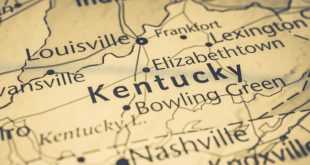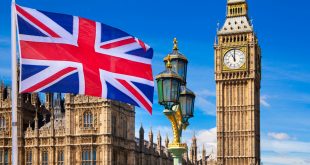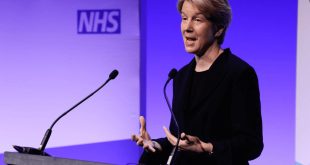Like all industry stakeholders, Regulus Partners looks forward to the events, excitement and drama of this week’s Cheltenham Festival. Nevertheless, the festival’s success and mass appeal cannot hide racing’s structural problems which must be confronted head-on in 2019…
This week, the Cheltenham Festival marks the apex of GB jumps racing, one of the biggest mass engagement opportunities that GB racing has, and one of the biggest betting events in the British sporting calendar. There is no doubt that racing will put on a great show, but it is worth reflecting on what has happened so far this year, what needs to happen next and how structurally meaningful it could be for many betting and racing stakeholders.
The Cheltenham Festival is racing’s biggest betting event. It is also very strong in terms of attendance and viewing figures. Cheltenham works: it has the story, the spectacle, the quality, the history, the uncertainty (usually) and the competition.
As a generator of mass market interest in racing, betting revenue (in UK and Ireland) and fan-punter engagement, it is literally unequalled. But it is an apex product – the top of a pyramid that would make little sense without the great mass of jumps racing that occurs around and ‘beneath’ it. This is especially true of jumps racing as the purpose is to compete for prize money (and glory), not to prove pedigree for stud.
The response of some key racing stakeholder has been to boycott ARC (which over-indexes in Class 4-7 races), since it led the cuts (see last week’s WP). A temporary agreement has now been reached, with ARC committing to unlocking the necessary extra funding for March. In the meantime, a number of ARC fixtures had extremely small fields (one bit of silver lining: a number of smaller local yards were able to collect a few rare victories), though typically on courses/days where the mass market wasn’t really looking.
The damage is therefore highly containable from an external perspective – so far. But the nature of the agreement remains a pretty big problem: none of the underlying issues have gone away and while LBO closures from April might help to explain the logic of ARC’s (and others) actions to horsemen, it will not change the facts – or the need for a meaningful agreement (rather than an agreement to postpone an agreement) to prevent lasting damage.
Racing has seen a bonanza of income in the last decade, from media rights and most recently the modernisation of the levy to capture online. The vast majority of this has been committed to the top end of racing, which arguably doesn’t need the help; but there has been enough money in the system for difficult questions to be swerved and a highly inefficient status quo to be preserved. That is now changing and changing quickly for a largely unprepared sector.
From April, questions like: how much racing can be economically supported; to what extent if at all should ‘grassroots’ be subsidised by more commercially successful fixtures (and where are the inter-dependencies); what racing, and when, is most engaging to modern customers; what role should betting have in shaping the product as a key consumer and income stream – will not only have to be asked, but answered and acted upon. This will create winners and losers and may even reinvigorate the industry – but if it can’t be done in an organised, mature and timely manner (none of which has been on display in the last two weeks) then there will only be losers – including Britain’s betting companies.
After last week’s daily diet of inquiries, parliamentary events and policy announcements (from the Labour Party and the Church of England), the politics of gambling returned briefly to a lower key register.
The Shadow Cabinet Office Minister, Laura Smith (Lab, Crewe & Nantwich) banged in a half-dozen Parliamentary Questions in relation to “concerns about the convergence of gaming and gambling”. Smith is a relative newcomer to the gambling policy debate and her interest seems likely to be a part of a Labour Party pincer movement to embarrass the Government (and to advance the cause of legislative reform).
Elsewhere, HM Treasury admitted that it did not have the foggiest how much duty it collects from the online gambling sector (in an answer to a PQ from the Conservative Lord Smith of Hindhead). Smith, who oversees his party’s lottery operation, had more joy with his questions about the scale of remote gambling in Britain. At last count, it seems there were 317 unique licensees (B2B as well as B2C) and 1,375 distinct websites and apps. The statistics reveal a picture of supply fluidity. Since 2015, a total of 198 remote operators have received licences from the Gambling Commission – but the overall number of licensees has increased by just 36.
Last week, Lord Chadlington called for more support for General Practitioners in identifying and dealing with problem gambling. This week, he asked the Health Secretary how much had been spent on educating GPs on “health risks associated with gambling” and what plans it had to increase spending. Given that the answer to the first question is likely to be nil (or somewhere in that postcode) and the NHS Long-Term Plan does at least consider problem gambling, the Government ought to be able to announce some sort of increase.
Online gambling will be back in the spotlight next week. On Tuesday, Richard Graham (Cons, Gloucester) will lead a Westminster Hall Debate on online gambling protections. Graham’s interest in matters gambling appears relatively recent – although he welcomed stake reduction on FOBTs and the forthcoming increase in remote gaming duty he has generally voted against tighter regulation of gambling, including on FOBTs. His decision to sponsor next week’s debate appears to be reflective of a groundswell of Conservative back-bench calls for regulatory reform.
On Wednesday, the Government’s Spring Statement is expected to include further information on plans for the taxation of the digital economy (which could have some relevance for remote gambling operators). Thursday meanwhile is the deadline for written submissions to the All Party Parliamentary Group for Gambling-Related Harm’s inquiry into online gambling; with the first hearing (featuring the concern group, Gambling With Lives) scheduled for 27 March.










